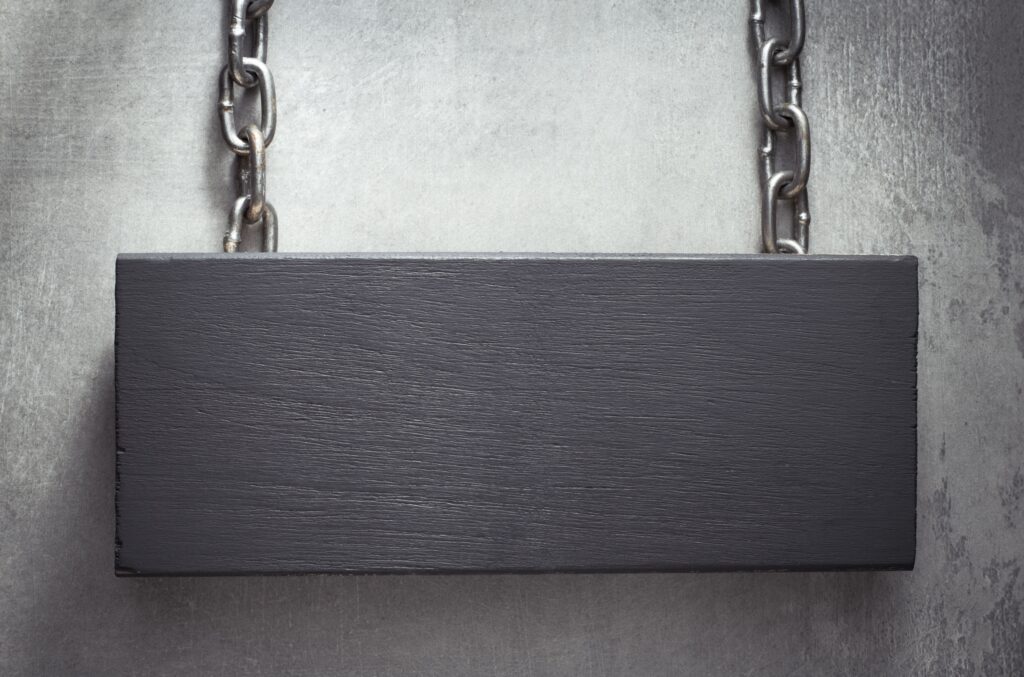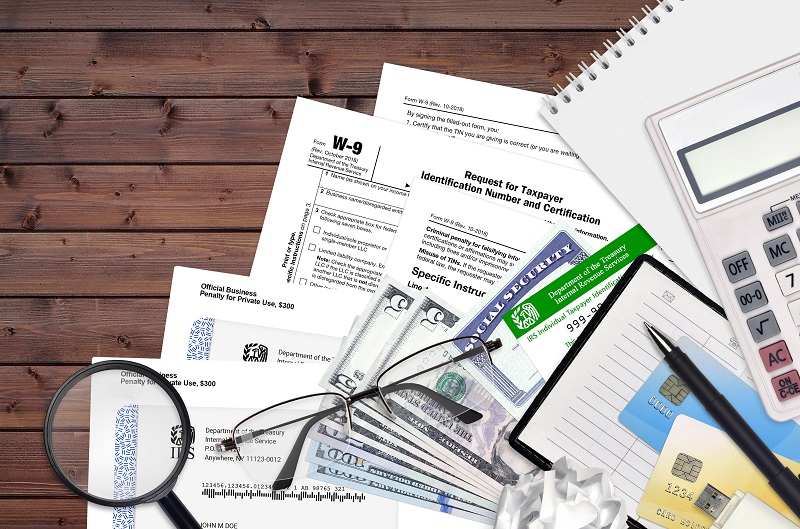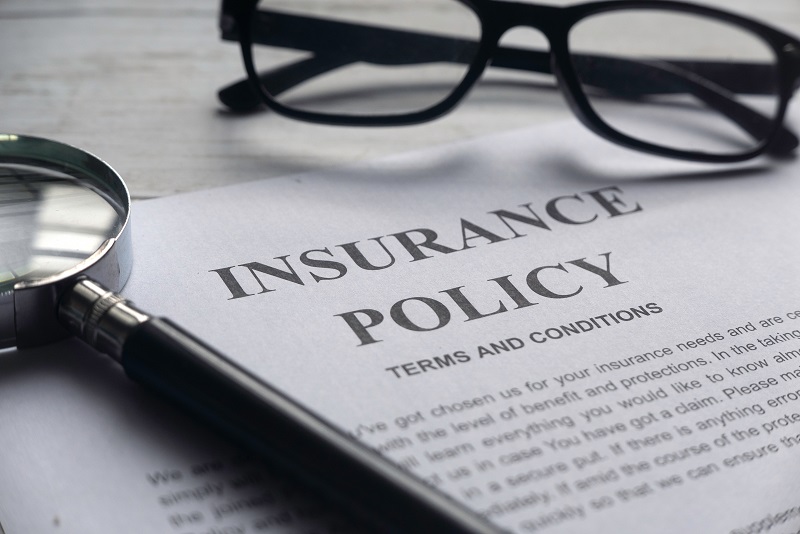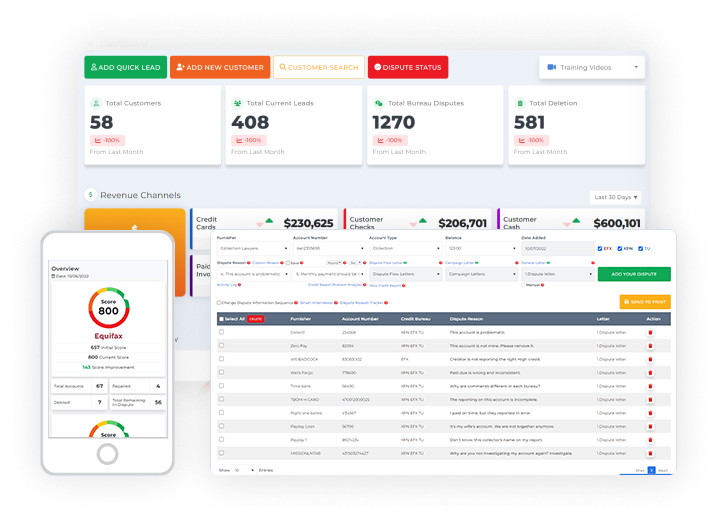If you’re considering starting a credit repair business in Idaho, it’s essential to understand the legal framework that governs this industry. In this article, we’ll walk you through the key laws and regulations you need to be aware of to ensure your business is compliant and successful.
Choose A Business Name

Pick a unique and professional name for your credit repair business. Make sure it is not already in use by another company.
- Choose a Name that Reflects Your Services: Select a name that clearly communicates the nature of your business and the services you provide. This helps potential clients understand what your business does and makes it easier for them to find you.
- Keep It Simple and Memorable: Choose a name that is easy to spell, pronounce, and remember. Avoid using complex words or phrases that may be difficult for people to remember or search for.
- Make It Unique: Ensure your chosen name is distinct from other businesses, especially those in the credit repair industry. A unique name helps you stand out from competitors and reduces confusion among potential clients.
- Verify Availability: Check the Idaho Secretary of State’s business name database to ensure your chosen name is not already in use by another company. You can search the database on the Idaho Secretary of State website.
- Avoid Misleading or Deceptive Names: Your business name should not be misleading or suggest any affiliation with government agencies, credit bureaus, or other organizations that you do not have a relationship with.
- Comply with Idaho State Regulations: Ensure your business name complies with Idaho state regulations. For example, if you are forming an LLC, your business name must include “Limited Liability Company” or an abbreviation like “LLC” or “L.L.C.”
- Consider Domain Availability: Check the availability of domain names that align with your business name, as having a website with a matching domain is beneficial for marketing and branding purposes.
- Plan for Future Growth: Select a name that allows for potential expansion of your services or target market, so you don’t have to rebrand if your business grows or evolves.
- Conduct a Trademark Search: Search the United States Patent and Trademark Office (USPTO) database to ensure your chosen name doesn’t infringe on any existing trademarks. If you plan to protect your business name, consider consulting with a trademark attorney.
- Get Feedback: Share your potential business name with friends, family, or colleagues to get feedback on its appeal, memorability, and relevance to your services.
Register Your Business

Register your business with the Idaho Secretary of State. Depending on your business structure, you may need to register as a sole proprietorship, partnership, limited liability company (LLC), or corporation.
Visit the Idaho Secretary of State's Official Website:
Go to the Idaho Secretary of State’s Website to access information and resources related to starting a business in Idaho.
Determine Your Business Structure:
Before registering your business, decide on the appropriate business structure (e.g., sole proprietorship, partnership, limited liability company, or corporation). Each structure has different legal and tax implications, so you may want to consult with a legal or financial professional to help you make the best decision for your business.
Register Your Business Name:
If you’re starting an LLC, corporation, or partnership, you will need to register your business name with the Idaho Secretary of State. You can do this by:
- Conducting a business name search: Check the Idaho Secretary of State’s business name database to ensure your chosen name is available and not already in use by another company.
- Filing the necessary forms: Depending on your chosen business structure, you may need to file Articles of Organization (for an LLC), Articles of Incorporation (for a corporation), or a Statement of Partnership Authority (for a partnership).
File Online Or By Mail:
You can choose to file your documents online through the Idaho Secretary of State’s SOSBiz portal or by downloading the appropriate forms from the website and mailing them to the Secretary of State’s office.
Pay The Filing Fee:
When registering your business, you will need to pay a filing fee. The fee amount varies depending on the business structure. You can find the fee schedule on the Idaho Secretary of State’s website.
Register For State Taxes:
Depending on your business activities, you may also need to register for state taxes with the Idaho State Tax Commission.
Obtain an EIN

Apply for an Employer Identification Number (EIN) from the Internal Revenue Service (IRS). This number is required for tax reporting purposes.
1. Online Application:
The fastest and most convenient method to obtain an EIN is to apply online. The online application is available for businesses located within the United States or its territories.
- Visit the IRS Website: Go to the IRS EIN Assistant.
- Follow the Instructions: Click “Apply Online Now” and follow the step-by-step instructions provided by the EIN Assistant. You will need to complete the application in one session, as you cannot save and return to it later.
- Receive Your EIN: After completing the application, you will receive your EIN immediately. Make sure to save or print the confirmation notice, as this is the only time the IRS will provide it.
2. Apply by Mail:
If you prefer to apply by mail, you can complete Form SS-4, the Application for Employer Identification Number.
- Download Form SS-4: Obtain a copy of Form SS-4 from the IRS website.
- Complete the Form: Fill out the required information, including details about your business structure, responsible party, and business activities.
- Mail the Form: Send the completed Form SS-4 to the following address:
Internal Revenue Service Attn: EIN Operation Cincinnati, OH 45999 - Wait for Your EIN: Processing times for mailed applications can take up to 4-5 weeks.
3. Apply By Fax:
You can also apply for an EIN by fax. To do this, complete Form SS-4 and fax it to the appropriate IRS fax number.
- Complete Form SS-4: Follow the same instructions as for applying by mail.
- Fax the Form: Fax the completed Form SS-4 to the IRS at (855) 641-6935.
- Wait for Your EIN: The processing time for faxed applications is typically around 4 business days. The IRS will fax back your EIN once it’s assigned.
Remember, applying for an EIN is free, and you should on.
Open A Business Bank Account

Open a separate bank account for your business to keep personal and business finances separate.
Research Banks And Credit Unions:
Look for banks or credit unions in Idaho that offer business banking services. Consider factors such as account fees, transaction limits, minimum balance requirements, online banking features, and customer service when choosing a financial institution.
Choose The Right Account Type:
Banks and credit unions offer various types of business accounts, such as checking accounts, savings accounts, and merchant services accounts. Determine which account(s) best suit your business needs.
Gather Required Documentation:
When opening a business bank account, you’ll need to provide several documents, which may include:
- Employer Identification Number (EIN) or Social Security Number (SSN) if you’re a sole proprietor
- Business formation documents (e.g., Articles of Organization for an LLC, Articles of Incorporation for a corporation)
- Business license or permit, if applicable
- Partnership agreement, if you’re operating as a partnership
- Identification documents for the business owner(s), such as a driver’s license or passport
Visit the Bank or Credit Union:
To open your account, you may need to visit the financial institution’s local branch in person, although some banks now offer online account opening for businesses. Contact the bank or credit union to inquire about their account opening process.
Complete The Application:
Fill out the required application forms and provide the necessary documentation. You may also need to provide information about your business, such as its purpose, industry, and estimated annual revenue.
Deposit Initial Funds:
Many banks and credit unions require an initial deposit to open a business bank account. The minimum deposit amount varies depending on the financial institution and account type.
Review And Sign the Account Agreement:
Carefully review the account agreement, including any terms and conditions and transaction limits. Sign the agreement to finalize the account opening process.
Set Up Online Banking And Order Checks:
Once your account is open, set up online banking access and order business checks, if necessary.
Maintain Your Account:
Monitor your account regularly to track income, expenses, and transactions. Keep accurate records for tax and accounting purposes, and ensure you comply with any account terms and conditions.
Obtain Any Required Licenses And Permits

Check with your local city or county government office for any additional licenses or permits required to operate a credit repair business in your area.
- Local Business License: Some cities or counties in Idaho may require you to obtain a local business license or permit. Check with your local city or county clerk’s office to determine if a business license is required and the process for obtaining one.
- Zoning and Land Use Permits: Make sure your credit repair business location complies with local zoning and land use regulations. Contact your local zoning or planning department to inquire about any zoning restrictions or permits that may apply to your business location.
- Professional Licenses: Although credit repair businesses in Idaho do not typically require a specific professional license, it is important to stay current with industry regulations and best practices. Consider joining industry associations or obtaining relevant certifications to demonstrate your expertise and professionalism.
- Sales Tax Permit: If your credit repair business sells products or provides taxable services, you may need to register for a sales tax permit with the Idaho State Tax Commission. Visit their website at for more information on sales tax permits and registration.
- Employer Requirements: If you plan to hire employees for your credit repair business, you may need to register for unemployment insurance, workers’ compensation, and other employer-related taxes and requirements with the Idaho Department of Labor and the Idaho State Tax Commission.
Comply with Idaho's Credit Services Organization Act

Credit repair businesses in Idaho must adhere to the Credit Services Organization Act, which outlines regulations and consumer protections.
- Providing a Written Contract: Credit repair organizations must furnish consumers with a written contract detailing the services to be provided, the total cost of the services, and an explicit cancellation policy.
- Cancellation Rights: Under the CROA, consumers have the right to cancel a credit repair contract within three business days after the date it was signed without incurring any charges.
- Prohibiting Upfront Fees: Credit repair organizations cannot charge or accept any fees for services until they have completed the promised services.
- Prohibiting False or Misleading Statements: Credit repair organizations are not allowed to make false or misleading claims about their services, including promising to remove accurate but negative information from a consumer’s credit report.
- Providing a Disclosure Statement: Credit repair organizations must provide a disclosure statement titled “Consumer Credit File Rights Under State and Federal Law” before signing a contract with a consumer. This statement informs consumers about their rights under the CROA and other applicable laws.
Obtain General Liability Insurance

It’s a good idea to obtain general liability insurance to protect your business from potential legal issues or financial losses.
The cost of general liability insurance varies depending on several factors, such as:
- Business size and structure
- Number of employees
- Location of the business
- Industry risks and history of claims
- Coverage limits and deductibles
For a credit repair business in Idaho, general liability insurance can provide coverage for:
- Third-party Bodily Injury: If someone is injured on your business premises or as a result of your business operations, general liability insurance can cover medical expenses, legal fees, and any damages awarded.
- Third-party Property Damage: If your business operations cause damage to someone else’s property, general liability insurance can cover the cost of repairs or replacement.
- Advertising Injury: If your business is accused of copyright infringement, libel, slander, or other advertising-related offenses, general liability insurance can cover legal fees and damages.
- Personal Injury: General liability insurance can also cover claims related to false arrest, wrongful eviction, invasion of privacy, and similar personal injury incidents.
To obtain general liability insurance for your credit repair business in Idaho, consider the following steps:
- Research Insurance Providers: Look for insurance companies that specialize in business insurance or have experience providing coverage for credit repair businesses.
- Compare Quotes: Request quotes from multiple insurance providers and compare coverage options, limits, deductibles, and premiums to find the best policy for your business.
- Review Coverage Options: Ensure that the policy you select provides adequate coverage for your specific risks and business operations.
4. Purchase the policy: Once you’ve chosen the best policy for your credit repair business, purchase it and maintain continuous coverage. - Regularly Review Your Policy: As your business grows or changes, your insurance needs may also change. Regularly review your policy to ensure you have the appropriate coverage.
Develop A Marketing Strategy

Create a marketing plan that targets your ideal customers and promotes your credit repair services. This may include online advertising, social media, and networking with local businesses and community organizations.
Build A Professional Website:
Create a user-friendly, informative, and professional website for your credit repair business. Ensure it clearly explains your services, highlights your expertise, and includes contact information. Optimize the website for search engines (SEO) to increase visibility in local search results.
Utilize Social Media:
Establish a presence on popular social media platforms like Facebook, Twitter, LinkedIn, and Instagram. Share helpful tips, industry news, and success stories to engage with potential clients and build your reputation as a trusted expert in the credit repair industry.
Offer Free Workshops or Webinars:
Host free workshops or webinars in your local community or online to educate people about credit repair, credit scores, and responsible financial management. This can help establish your credibility and generate leads for your business.
Partner With Local Businesses:
Collaborate with local businesses such as real estate agencies, mortgage brokers, and car dealerships that may encounter clients with credit issues. By building a referral network, you can mutually benefit from each other’s services.
Content Marketing:
Create and share valuable content through blog posts, articles, and videos. Provide tips and insights about credit repair and personal finance to demonstrate your expertise and attract potential clients.
Email Marketing:
Build an email list and send regular newsletters with helpful information, special offers, and updates about your credit repair services. This can help keep your business top-of-mind for potential clients and encourage referrals from existing clients.
Online Advertising:
Use targeted online advertising through platforms like Google Ads or Facebook Ads to reach potential clients in Idaho. Create compelling ads that highlight your services and target people searching for credit repair services or facing credit issues.
Utilize Local Media:
Reach out to local newspapers, radio stations, and TV stations to share your expertise and offer interviews or guest appearances. This can help build awareness of your credit repair business and position you as a local expert in the field.
Encourage Client Testimonials And Reviews:
Ask satisfied clients to provide testimonials or leave reviews on online platforms like Google My Business, Yelp, or social media pages. Positive reviews can help build trust and credibility with potential clients.
Network And Attend Local Events:
Join local business groups, chambers of commerce, or professional associations to network with other business owners and potential clients. Attend local events and trade shows to promote your credit repair business and connect with your target audience.
Stay Up-To-Date With Industry Changes

As a credit repair professional, it’s essential to stay current with changes in credit reporting, credit scoring, and relevant laws and regulations.
Join Industry Associations:
Participate in local or national credit repair associations, such as the National Association of Credit Services Organizations (NACSO) or the American Credit Repair Academy (ACRA). These organizations often provide resources, newsletters, and updates on industry changes, best practices, and legal compliance.
Attend Conferences and Seminars:
Attend credit repair and financial industry conferences, seminars, and workshops. These events provide opportunities to network with other professionals, learn about the latest trends, and gain insights into new regulations and best practices.
Subscribe To Newsletters and Publications:
Sign up for newsletters and industry publications that cover credit repair, personal finance, and consumer protection issues. These resources can help you stay informed about the latest news, regulations, and trends in the credit repair industry.
Monitor Regulatory Websites:
Regularly visit the websites of relevant regulatory bodies, such as the Consumer Financial Protection Bureau (CFPB), the Federal Trade Commission (FTC), and the Idaho Department of Finance. These organizations often post updates on rules, regulations, and enforcement actions related to credit repair and consumer protection.
Network With Industry Peers:
Connect with other credit repair professionals in Idaho and nationwide through online forums, social media groups, and networking events. Sharing knowledge and experiences with your peers can help you stay informed about industry changes and best practices.
Engage In Professional Development:
Participate in continuing education programs, workshops, or online courses related to credit repair, financial counseling, or consumer protection. Expanding your knowledge and skills can help you stay current with industry changes and better serve your clients.
Monitor Local News and Legislation:
Keep an eye on local news and legislative updates that may impact the credit repair industry in Idaho. Subscribe to local news outlets, follow relevant state legislators on social media, and track proposed legislation to stay informed about potential changes in state laws and regulations.
Utilize Legal Resources:
Consult with legal professionals or subscribe to legal resources that specialize in credit repair and consumer protection laws. These resources can provide insights into legal updates, compliance requirements, and potential enforcement actions.
Stay Active in Your Community:
Engage with community organizations, chambers of commerce, and professional associations in Idaho. These groups often host events or share information about local developments that may impact your credit repair business.
Ready to start your credit repair business in Idaho?
Make sure you are informed and compliant with the latest state laws.
Click now to learn more.
Bonus: Now that you have read this article, why not take your new skill and start your own credit business helping others? We have free training that can help you do just that.



